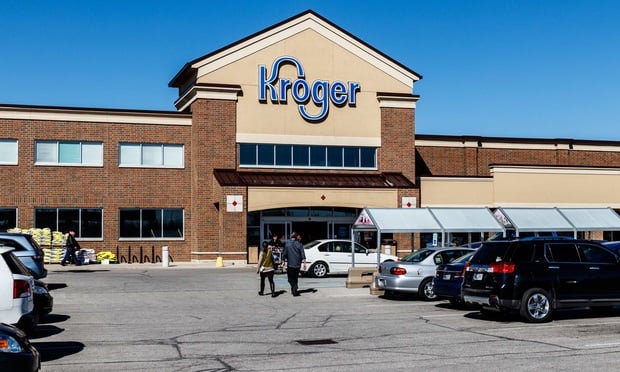Many urban developers in Denver oppose the proposed ordinance. "This is a quick, easy fix on the public side and is very onerous for the private sector," Jamie Fitzpatrick of the Denver-based Corum Group tells GlobeSt.com. He is looking to build a 230-unit project near Coors Field. The new ordinance, if adopted, would dramatically change the economics of the deal, he says.
Corum also has built far more than 1,000 affordable units in the ski resort areas of the mountains. "You have to look to see who is going to benefit from the affordable housing and that is the employers," Fitzpatrick argues. "In the mountains, we receive broad-based subsidies from the employers to build affordable housing."
Not only is Webb supporting the task force recommendations, but he is expanding it to include impact fees to help "keep pace with any affordable housing units that are lost to development." Government clearly, he says, "has a significant role to play in protecting and in encouraging affordable housing for families."
Webb says "the underside of Denver's thriving economy" is that workers–from teachers to public safety workers–are heading to the suburbs to live "primarily because Denver has become too expensive to afford a house."
Denver has provided tools to help preserve and improve existing housing plus develop more. Those plans include down payment assistance, mortgage subsidies, clean-up or fix-up loans and construction incentives. All the while, there have been challenges, including the disappearance of some starter homes razed to make way for homes selling at five times the value.
Fitzpatrick says the ordinance approaches the problem in the wrong way. One idea, he says, is to increase the 'head tax' and use the extra funding to set up a trust for affordable housing.
Anne Warhover, president of the non-profit Downtown Denver Partnership, agrees it's the wrong approach. She too supports a trust, but suggests generating revenue through a fee on every construction project and supplementing it with grants and foundations.
"It's not fair to take what is a community problem and require a tiny, sliver of the private sector to pay for it," Warhover says. Ultimately, it could curtail the amount of new housing built in the city, she tells GlobeSt.com. She says it will cost developers about $50,000 more for each affordable unit built. That cost will be passed on to the 90% of the people in the project who aren't being subsidized.
Ben Kelly, the partnership's spokesman, says the city is targeting such a small, precise demographic, that developers would never pursue it as market. Plus, there are so many deed restrictions on the affordable units that he doubts many would qualify.
Warhover points to the new Westin hotel as an example of the problem at hand. "The city is going to spend $105 million to build a new hotel at DIA, something that the partnership supports strongly," she tells GlobeSt.com,"but that new Westin is going to create about 250 to 300 new jobs, most of them low-paying. There's nothing in the city's plan to provide for housing for the people who will work there." It's the same at the redevelopment of the Sears site in Cherry Creek North and the new Invesco Field at Mile High.
And the stickling points of Webb's proposal that have divided the Denver leaders are: – The basic provisions of the task force's "inclusionary" zoning ordinance, which require developments of 30 units or more to include at least 10% at affordable prices. For a family of four, 80% of the median income equates to about $51,000 annually and a single person, about $33,000. The city would provide a $5,000 subsidy for each affordable unit.
– Lower the "opt out" provision from a $140,000 plus cash payment per unit to $70,000. This is the developer's contribution to the city's affordable housing trust fund in lieu of an affordable housing unit.
– Impose impact fees for redevelopment activities that clearly affect the supply and affordability of housing in the city. Webb is proposing a $30,000 per unit, housing preservation impact fee for demolition of existing stock to make way for more expensive residences or non-residential land uses.
– Add Lowry and Stapleton to the city's incentive payment program.
– Expand the amount of down-payment assistance, mortgage subsidies, clean-up or fix-up loans, construction incentives and other programs to assist moderate-income families. The revenue would come from impact fees and any "opt-out" fees multifamily developers choose to pay.
– Team with the Downtown Denver Partnership and the Metro Denver Chamber of Commerce to develop employer-city programs to help make housing affordable near places of employment.
– Appoint a new high-level ombudsman in the Community Planning and Development Agency to help expedite assistance applications, review and streamline proposed projects and coordinate with different city bureaucracies.
Want to continue reading?
Become a Free ALM Digital Reader.
Once you are an ALM Digital Member, you’ll receive:
- Breaking commercial real estate news and analysis, on-site and via our newsletters and custom alerts
- Educational webcasts, white papers, and ebooks from industry thought leaders
- Critical coverage of the property casualty insurance and financial advisory markets on our other ALM sites, PropertyCasualty360 and ThinkAdvisor
Already have an account? Sign In Now
*May exclude premium content© 2024 ALM Global, LLC, All Rights Reserved. Request academic re-use from www.copyright.com. All other uses, submit a request to [email protected]. For more information visit Asset & Logo Licensing.








